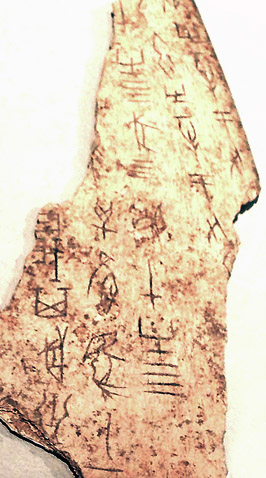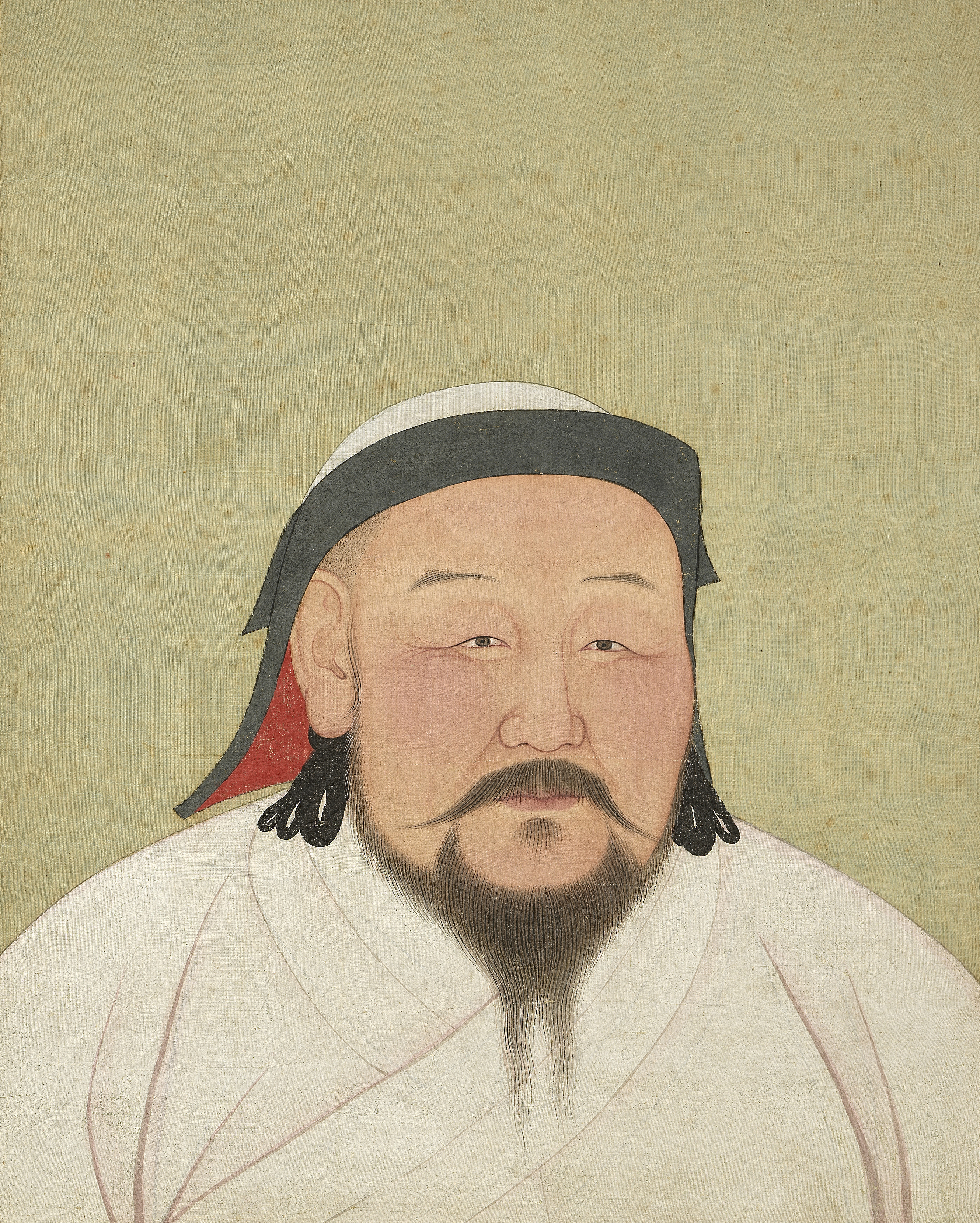|
Yue Fei
Yue Fei (; March 24, 1103 – January 28, 1142), courtesy name Pengju (), was a Chinese military general of the Song dynasty and is remembered as a patriotic folk hero, national hero, known for leading its forces in Jin–Song Wars, the wars in the 12th century between Southern Song and the Jurchen people, Jurchen-led Jin dynasty (1115–1234), Jin dynasty in northern China. Because of his warlike stance, he was put to death by the Song dynasty#Southern Song, 1127–1279, Southern Song government in 1142 under a frameup, after a negotiated peace was achieved with the Jin dynasty. Yue Fei is depicted in the ''Wu Shuang Pu'' by Jin Guliang. Yue Fei's Ancestral home (China), ancestral home was in Xiaoti, Yonghe Village, Tangyin, Xiangzhou, Henan (in present-day Tangyin County, Anyang, Henan). He was granted the posthumous name Wumu () by Emperor Xiaozong of Song, Emperor Xiaozong in 1169, and later granted the noble title King of E () posthumously by the Emperor Ningzong of Song ... [...More Info...] [...Related Items...] OR: [Wikipedia] [Google] [Baidu] |
Yue (surname)
Yuè is the Hanyu Pinyin transliteration of the Chinese family name 岳. In places which use the Wade-Giles romanization such as Taiwan, Yue is usually spelled as "Yüeh" or "Yueh". Yuè is also the pinyin transliteration of the surname 樂 in traditional character and 乐 in simplified character. This name can also be read as Lè, which has a different origin. Prominent individuals with the surname Yue 岳 * Yue Hua (岳華) actor *Yue Fei (岳飛) military general who lived in the Southern Song dynasty * Yue Xin (activist) (岳昕) feminist and Marxist activist Prominent individuals with the surname Yue 樂/乐 It is the 81st name on the ''Hundred Family Surnames'' poem.K. S. Tom. 989(1989). Echoes from Old China: Life, Legends and Lore of the Middle Kingdom. University of Hawaii Press. . * Yue Jin (樂進) Military General who served under Warlord Cao Cao in the Late Han dynasty *Yue Yi Yue Yi (), enfeoffed as Lord of Changguo (), was a Chinese military general. He was ... [...More Info...] [...Related Items...] OR: [Wikipedia] [Google] [Baidu] |
Emperor Ningzong Of Song
Emperor Ningzong of Song (19 November 1168 – 17 September 1224), personal name Zhao Kuo, was the 13th emperor of the Song dynasty of China and the fourth emperor of the Southern Song dynasty. He reigned from 1194 until his death in 1224. He was the second son and the only surviving child of his predecessor Guangzong and like his father, Ningzong was weak-minded; easily dominated by women. During Ningzong's reign, he had built 75 commemorative shrines and steles, the most in Song history. He was a great patron of art, promoting artists such as Liang Kai and Ma Yuan to painter-in-waiting and writing poems about their paintings. Upon Ningzong's death, a minor official and a remote relative of Ningzong became Emperor Lizong. Reign He was noted for the cultural and intellectual achievements made during his reign. In particular, Zhu Xi wrote some of his most famous Neo-Confucianist works during this period. However, Emperor Ningzong was known for his aversion towards the spre ... [...More Info...] [...Related Items...] OR: [Wikipedia] [Google] [Baidu] |
Henan
Henan; alternatively Honan is a province in Central China. Henan is home to many heritage sites, including Yinxu, the ruins of the final capital of the Shang dynasty () and the Shaolin Temple. Four of the historical capitals of China, Luoyang, Anyang, Kaifeng and Zhengzhou, are in Henan. While the province's name means 'south of the river', approximately a quarter of the province lies north of the Yellow River. With an area of , Henan covers a large part of the fertile and densely populated North China Plain. Its neighboring provinces are Shaanxi, Shanxi, Hebei, Shandong, Anhui, and Hubei. Henan is China's third-most populous province and the most populous among inland provinces, with a population of over 99 million as of 2020. It is also the world's seventh-most populous administrative division; if it were a country by itself, Henan would be the 17th-most populous in the world, behind Egypt and Vietnam. People from Henan often suffer from regional discrimination ... [...More Info...] [...Related Items...] OR: [Wikipedia] [Google] [Baidu] |
Anyang
Anyang ( zh, s=安阳, t=安陽; ) is a prefecture-level city in Henan, China. Geographical coordinates are 35° 41'~ 36° 21' north latitude and 113° 38'~ 114° 59' east longitude. The northernmost city in Henan, Anyang borders Puyang to the east, Hebi and Xinxiang to the south, and the provinces of Shanxi and Hebei to its west and north respectively. Anyang had a total population of 5,477,614 as of the 2020 Chinese census, 2020 census, 2,675,523 of whom lived in the built-up (or metro) area made of four urban districts and Anyang and Tangyin counties, now largely agglomerated with the city proper. Anyang is the location of the ancient city of Yinxu, Yin, which was the capital of the Shang dynasty and the first stable capital of China. As the ancient capital of the Seven Dynasties and one of the birthplaces of Chinese civilization, Anyang is rich in historical and cultural resources and has a number of world-class and national historical sites. At the end of 1986, it was recogniz ... [...More Info...] [...Related Items...] OR: [Wikipedia] [Google] [Baidu] |
Journal Of Asian Martial Arts
The ''Journal of Asian Martial Arts'' (''JAMA'') was a quarterly magazine published by Via Media Publishing Company that covered various aspects of martial arts from Asia, but also included material from other parts of the world. The magazine had its headquarters in Santa Fe. It ceased publication in 2012, ending with a final book entitled "Asian Martial Arts". Content The journal distinguished itself by offering in-depth articles and analysis of karate, taekwondo, judo, aikido, taijiquan, and shaolinquan, and many other Asian-based martial arts. Articles covered a wide range of inquiry including history, anthropology, health, medicine, mechanics, martial application, and culture. The articles were intended to be academically sound, yet written in a manner that made them accessible to the general reader. Illustrated with photographs and drawings (many by the late Oscar Ratti), charts and diagrams, and reference material distinguished this journal's oversize format. The magazin ... [...More Info...] [...Related Items...] OR: [Wikipedia] [Google] [Baidu] |
Qian Ruwen , the first hexagram of the ''I Ching''
*Qian (mass), a Chinese unit of weight (钱 / 錢)
*Qian (surname), a Chinese surname (钱 / 錢)
*Qian County, in Xianyang, Shaanxi, China
*Qian Mountains, mountain range in Northeast China
{{disambig ...
Qian may refer to: *Cash (Chinese coin), a circular copper coin with a square hole in the center used from the 4th century BCE to the 20th century CE *Guizhou, abbreviated as ''Qián'' (黔), province of China *Mace (unit), or Qian, one of the Chinese units of measurement, equal to 5g *Qian (hexagram) __NOTOC__ This is a list of the 64 hexagrams of the ''I Ching'', or ''Book of Changes'', and their Unicode character codes. This list is in King Wen order. (Cf. other hexagram sequences.) Hexagram 1 right ''Hexagram 1'' is named (qi ... [...More Info...] [...Related Items...] OR: [Wikipedia] [Google] [Baidu] |
Deng Guangming
Dèng Guǎngmíng (16 March 1907 – 10 January 1998) was a Chinese historian who specialized in the 10th to 13th century Song, Jin and Liao dynasties. Born in Linyi County, Shandong and known by the courtesy name Gongsan (), Deng's principal works include: *''Outline of Chinese History • The Song, Liao and Jin Dynasties'' () *'' Wang Anshi's Political Reforms During the Northern Song Dynasty'' () *''Biography of Yue Fei'' () *''Biography of Xin Qiji'' () *''Biography of Chen Longchuan'' () *''Chronicle of Xin Qiji's Life'' () *''Annotated Works of Xin Qiji'' () *''Amended Institutional Function Records from the History of Song'' () *''Amended Criminal Law Records from the History of Song'' () Life Early life Born to a relatively well-off family in Qijia Village (), Linyi County, Deng entered a private school in 1913 at the age of six. In the autumn of 1920 he passed the entrance examination for the Lingao County Number One Advanced Primary School then three years later en ... [...More Info...] [...Related Items...] OR: [Wikipedia] [Google] [Baidu] |
Yuan Dynasty
The Yuan dynasty ( ; zh, c=元朝, p=Yuáncháo), officially the Great Yuan (; Mongolian language, Mongolian: , , literally 'Great Yuan State'), was a Mongol-led imperial dynasty of China and a successor state to the Mongol Empire after Division of the Mongol Empire, its division. It was established by Kublai (Emperor Shizu or Setsen Khan), the fifth khagan-emperor of the Mongol Empire from the Borjigin clan, and lasted from 1271 to 1368. In Chinese history, the Yuan dynasty followed the Song dynasty and preceded the Ming dynasty. Although Genghis Khan's enthronement as Khagan in 1206 was described in Chinese language, Chinese as the Han Chinese, Han-style title of Emperor of China, Emperor and the Mongol Empire had ruled territories including modern-day northern China for decades, it was not until 1271 that Kublai Khan officially proclaimed the dynasty in the traditional Han style, and the conquest was not complete until 1279 when the Southern Song dynasty was defeated in t ... [...More Info...] [...Related Items...] OR: [Wikipedia] [Google] [Baidu] |
History Of Song (Yuan Dynasty)
History is the systematic study of the past, focusing primarily on the human past. As an academic discipline, it analyses and interprets evidence to construct narratives about what happened and explain why it happened. Some theorists categorize history as a social science, while others see it as part of the humanities or consider it a hybrid discipline. Similar debates surround the purpose of history—for example, whether its main aim is theoretical, to uncover the truth, or practical, to learn lessons from the past. In a more general sense, the term ''history'' refers not to an academic field but to the past itself, times in the past, or to individual texts about the past. Historical research relies on primary and secondary sources to reconstruct past events and validate interpretations. Source criticism is used to evaluate these sources, assessing their authenticity, content, and reliability. Historians strive to integrate the perspectives of several sources to develop ... [...More Info...] [...Related Items...] OR: [Wikipedia] [Google] [Baidu] |




